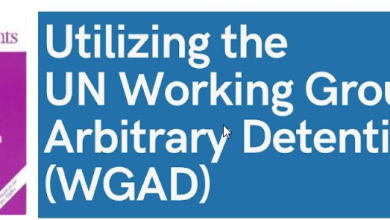Article: Is freedom merely an illusion? Analyzing the Impact of India’s colonial legacy on Kashmir since October 27, 1947
Syed Shafia Batool
 October 27, 1947, marks one of the most detrimental moments in the history of Kashmir dispute. On this day, the Indian military forces intruded the princely state of Jammu and Kashmir, sparking the onset of one of the world’s longest-standing conflicts. For many Kashmiris alike, this day is etched in their collective memory as Black Day, signifying a painful reminder of the occupation that has governed their lives ever since. What began on October 27 was not sought to integrate, but to gradually dominate and coerce Kashmir into submission, while suppressing its distinct socio-political identity.
October 27, 1947, marks one of the most detrimental moments in the history of Kashmir dispute. On this day, the Indian military forces intruded the princely state of Jammu and Kashmir, sparking the onset of one of the world’s longest-standing conflicts. For many Kashmiris alike, this day is etched in their collective memory as Black Day, signifying a painful reminder of the occupation that has governed their lives ever since. What began on October 27 was not sought to integrate, but to gradually dominate and coerce Kashmir into submission, while suppressing its distinct socio-political identity.
The historical narrative that surrounds it often begins with Maharaja Hari Singh’s haphazard decision to accede with India. A narrative that is typically framed as a reactionary response to alleged incursion by tribal forces and indigenous revolt. However, how much of this decision reflected the sovereign will of the majority? And how much of it was a desperate attempt of political expediency, is often overshadowed. It is certain that the hasty accession of Kashmir was never meant to be a final act. It was a provisional attempt, envisioned to be ratified by a plebiscite, which will ultimately allow Kashmiris to determine their future. The plebiscite, however, never materialized. Instead, the hollow promises of self-determination by Jawaharlal Nehru faded into obscurity within the broader neo-colonial project of India. The long-held promise of self-determination has been sporadically dismantled, under the disguise of national unity. Eventually, Kashmir was no longer viewed as a region of its own identity and aspirations, but rather as a piece of land, ought to be assimilated within the ultra-nationalist claims of ‘Atoot-Ang’. Therefore, in order to understand the Kashmir struggle that began on October 27, it’s important to recognize the neo-colonial dynamics at play.
For this one must question, how does a nation like India, born from the fight against colonial rule, now become an occupier itself? Is it not a vicious irony that a state, once yearning for liberation now denies another the same right to liberation? To understand this, Kwame Nkrumah’s theory of neo-colonialism offers a compelling perspective to assess Kashmir’s fate. What began on October 27, 1947, was not just the start of a coercive military operation—it was the beginning of a project, intended to reconstruct Kashmir, not according to the will of its people, but in accordance with the interests of a state determined to assert its control and authority over it. India, which once postured as a victim of colonial rule itself, enacted policies in Kashmir that imitated the very imperial practices it once sought to dismantle. In this way, Tariq Ali, a renowned historian referred India’s hold on Kashmir as a form of ‘internal colonialism’; while Amrita Ghosh argues that Kashmir represents a peculiar “neo-colony within a post-colony,” in which a state of living death persists under occupation.
However, what followed the illegitimate occupation of Kashmir on October 27, 1947 goes far beyond what any numbers and statistics can capture. Perhaps, one of the most devastating events was the Jammu Massacre. During October to November of1947, thousands of Kashmiri Muslims were massacred and displaced to West Punjab by extremist Hindus and Sikhs aided by Maharaja’s forces. A survivor of the pogrom, Dr Khalida Ghousia Akhtar referred to it as a “holocaust of the East, not mentioned in books,” as it left lasting wounds on Kashmiris, which are yet to be healed. Likewise, the revocation of the special status of Kashmir also resonated the same neo-colonial impulse that once began on October 27, 1947. Article 370 & 35-A which granted a special status to Jammu and Kashmir, were abrogated on 5 August 2019 under the pretense of integration and development. For Kashmiris, this act was a deliberate assault on their identity, rights and aspiration for self-determination. It presented them with a stark reminder that India’s state-building narrative has always been and will always be about control rather than inclusion.
When we reflect upon the contemporary scenario, the situation is no different. Kashmir continues to be one of the most heavily militarized zones, where democratic rights and civil liberties are obstinately subjugated under security pretext. Moreover, through institutionalization of draconian laws like the Armed Forces Special Powers Act (AFSPA) and the Public Safety Act (PSA), India has created a state of ‘exception’, where the rule of law is suspended and normal democratic processes are replaced by military might of the state. Anthropologist Ather Zia described these laws as a perpetual state of exception—where Kashmiris are trapped between a liminal space, which makes them neither a part of the Indian state, nor free to determine their own future.
The International dynamics of the conflict since October 27 also reflect a gloomy picture. Despite numerous resolutions and repeated calls for a plebiscite in the United Nations, Kashmir remains in a limbo. For decades, India has employed a rhetoric of nation-building and democracy to conceal its blatant assertion of dominance and systematic erosion of regional autonomy. Its initial acceptance of resolutions, followed by its later insistence that Kashmir is an “integral part” of its territory, exposes a neo-colonial maneuver. The Indian state has enacted what Achille Mbembe would describe as a form of necropolitics—a political framework where sovereignty is exercised through the power to decide life and death, reducing the Kashmiri people to subjects whose rights and lives are contingent upon state prerogatives
In this way, the memory of October 27 is not just about the accession; it’s a poignant reminder of the enduring legacy of colonialism, now manifesting through neo-colonial practices, where India’s drive for control over Kashmir has redefined identity, autonomy, and belonging. This ongoing struggle for justice, peace, and dignity reminds us that the fight for Kashmir’s freedom is far from over.
 (The writer is pursuing bachelors in International Relations from National Defence University, Islamabad, and worked as an intern in Kashmir Institute of International Relations.)
(The writer is pursuing bachelors in International Relations from National Defence University, Islamabad, and worked as an intern in Kashmir Institute of International Relations.)








